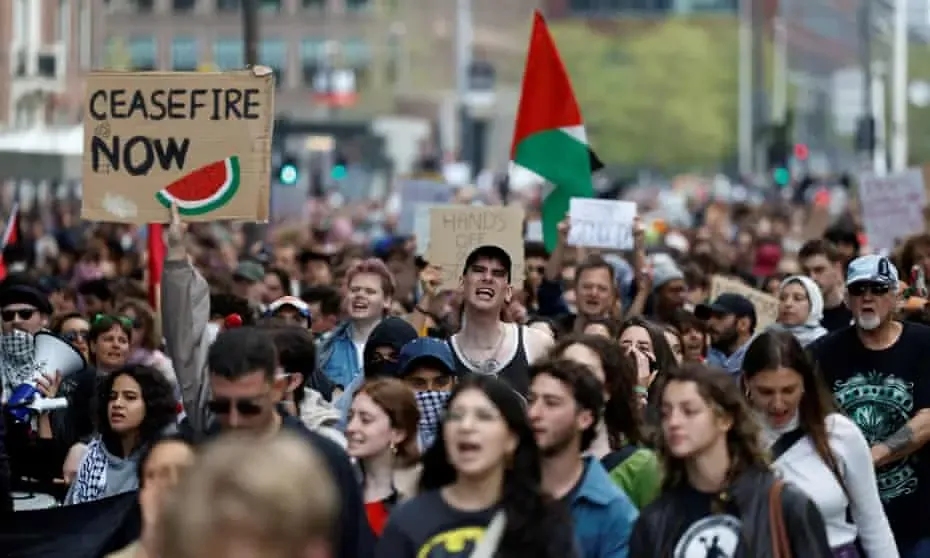In the Netherlands, tensions escalated as Dutch police dispersed an encampment at the University of Amsterdam, resulting in 169 arrests. Scenes of baton charges and tent demolitions unfolded as police confronted protesters who refused to vacate the campus. Amidst the chaos, a group of counter-protesters wielding flares briefly clashed with the main demonstration.
Similar scenes unfolded in Germany, where students occupied lecture halls at Leipzig University under banners denouncing "genocide." Police intervention led to criminal complaints and the initiation of proceedings against trespassing individuals. In Berlin, at the Free University, clashes erupted as police cleared a protest camp, resulting in arrests for incitement to hatred and trespassing.
France witnessed disruptions at Sciences Po and Sorbonne universities, where students barricaded themselves and occupied spaces to demand transparency regarding institutional ties with Israel. Police interventions aimed to restore order, allowing exams to proceed without incident. Meanwhile, in Switzerland, protests spread to universities in Lausanne, Geneva, and Zurich, with demands for the severance of ties with Israeli universities.
In Austria, protesters camped on the campus of Vienna University, erecting tents and banners since late Thursday. In Belgium, over 100 students occupied Ghent University, combining climate and Gaza protests.
The wave of demonstrations has not been confined to Western Europe. Protests have erupted in Ireland, Finland, Denmark, Italy, Spain, and the UK, echoing calls for solidarity with Palestine.
The escalation in Europe mirrors developments in central Athens, where clashes erupted during a pro-Palestinian rally outside the parliament building. Carrying Palestinian flags and banners, more than 300 people demanded an end to the violence in Gaza.
One protester, Antonis Davanellos, emphasized solidarity with Palestine, stating, "We are here in solidarity, and we will respond anytime the Palestinians call for solidarity."
The conflict in Gaza was ignited by an October attack on Israel by Hamas, resulting in significant casualties on both sides. Israel's retaliatory offensive in Gaza has drawn international condemnation, with calls for an immediate ceasefire to prevent further civilian casualties.
The protests highlight growing public concern over the humanitarian crisis in Gaza and the need for a diplomatic resolution to the conflict. As tensions escalate on European campuses and beyond, calls for peace resonate amidst the chaos of escalating violence in the Middle East.
Universities find themselves at the center of this debate, facing pressure to reassess their relationships with Israeli institutions in light of the ongoing conflict. Transparency and accountability are crucial as students demand clarity on institutional ties and their implications for human rights and international law.
Despite the challenges posed by the COVID-19 pandemic and logistical constraints, students are mobilizing in solidarity with Palestine, amplifying their voices to advocate for peace and justice in the region.
As the conflict rages on, the international community faces a critical juncture in its response to the Israel-Gaza crisis. Diplomatic efforts must intensify to facilitate a ceasefire and pave the way for meaningful dialogue towards a sustainable resolution to the longstanding conflict.

